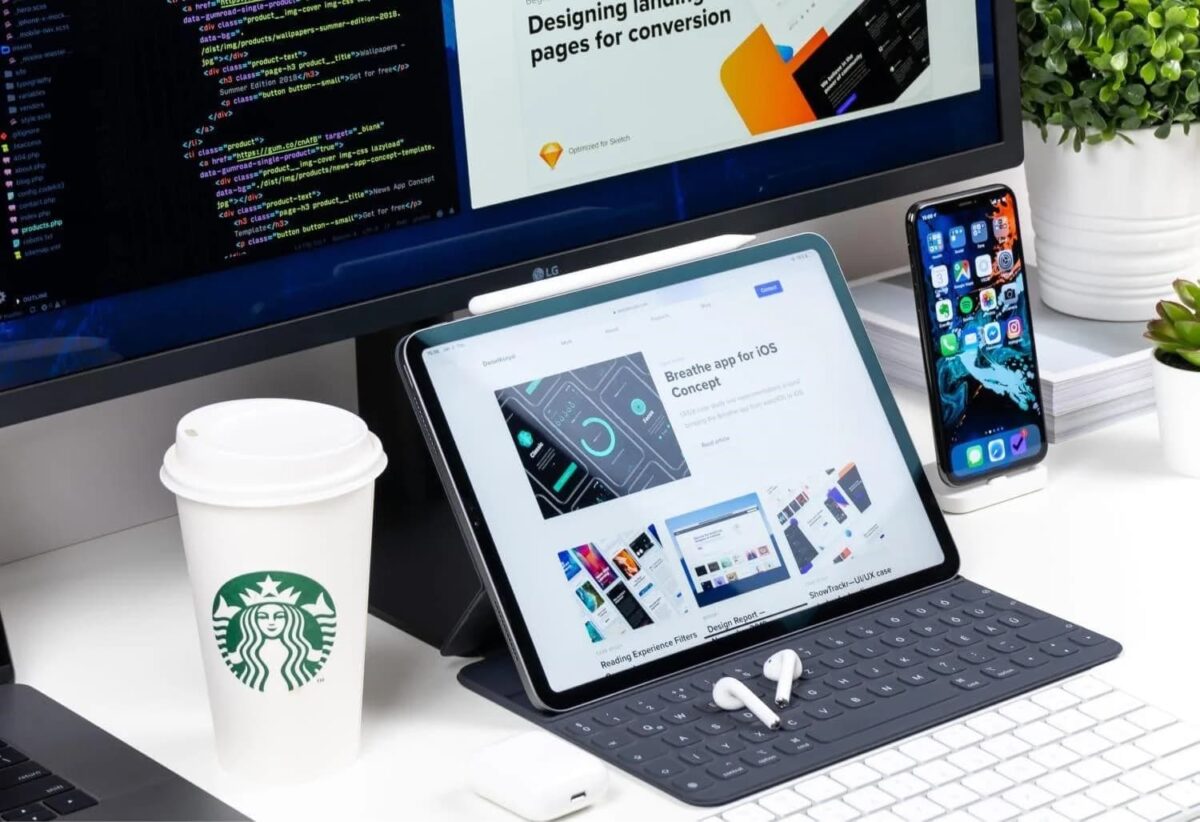In today’s digital world, where speed and mobility are becoming key components of professional success, the role of tablets in the hands of IT specialists is becoming increasingly important. These portable devices not only provide convenient access to information, but also become powerful tools for managing and optimizing various aspects of information technology.
1. Network management and monitoring:
Tablets provide IT professionals with the ability to quickly respond to changes in network infrastructure. Specialized network monitoring applications allow you to quickly identify and solve problems, ensuring the smooth operation of information systems.
2. Remote access and support:
Using tablets, IT professionals can provide remote support, resolve problems, and make system changes even when away from the desk. Remote access applications make it possible to interact effectively with servers and computers in real time.
3. Development and programming:
Tablets have become a useful tool for developers and programmers. There are apps that let you write code, test programs, and even manage project versions, making your workflow much easier.
4. Cloud technologies:
With the increasing importance of cloud services, tablets are becoming a convenient means of accessing cloud data storage and collaboration tools. IT professionals can instantly access the resources they need, collaborate on projects, and share information.
5. Data visualization and decision making:
With high-resolution displays and powerful processors, tablets are an excellent tool for data visualization and analytics. IT specialists can analyze statistics, build graphs and make important decisions directly on a mobile device.
6. Security and Authentication:
Tablets are also actively used in the security field. Biometric authentication and network security monitoring applications help protect sensitive data and sensitive transactions.
7. Integration and project management:
Tablets simplify project management processes by providing the ability to track tasks, collaborate with your team, and update information in real time. Dedicated project management applications allow IT professionals to stay connected with their teams even while on the go.
8. Testing and Debugging:
The ability to test and debug software directly on the tablet makes it a useful tool for testing application functionality. IT specialists can quickly identify and eliminate possible errors, increasing the quality of the product being developed.
9. Effective training and self-education:
Tablets are becoming an ideal tool for ongoing training of IT specialists. Educational apps, e-books and video tutorials are available anytime and anywhere, helping you keep your skills up to date.
10. Mobile test environments:
IT professionals can use tablets to create mobile test environments that can effectively test software compatibility with different mobile devices and operating systems.
Tablets in Information Security
Data security is a top priority for IT professionals, and tablets provide the means to effectively control and protect information. Biometric authentication tools and network security monitoring applications help maintain the highest standards of privacy.
With the use of tablets in the field of information security, IT specialists are able to monitor the state of network security, make operational changes to security policies and respond to potential threats in real time. This provides not only ease of use, but also reliability in protecting confidential data.

Bridge to Efficiency: IT Strategies for Making the Most of Tablets
In the world of information technology, where speed and mobility are key factors for success, tablets have become an indispensable tool for maximizing productivity and efficiency in the work of IT professionals. With constant changes in the technology landscape, developing smart strategies for using tablets is becoming an important part of the daily work of information technology professionals.
Optimization of Development and Coding:
The use of tablets in software development today is becoming not just an option, but also a strategic approach to improve the efficiency of the process. Developers can take advantage of specialized applications for writing code, debugging and managing projects directly from the tablet. This approach not only increases flexibility in work, but also allows you to quickly respond to changes in the software product being developed.
Cloud Management:
With the introduction of cloud technology into everyday practice, tablet strategy includes efficient management of cloud resources. Specialized applications allow you to monitor the status of cloud servers, scale resources and effectively manage data in the cloud. This is especially important as infrastructure requirements constantly change.
Integration with Remote Access Systems:
In the IT industry, where remote work is becoming increasingly common, the tablet strategy includes improving remote access systems. IT specialists can quickly intervene in the operation of servers, provide technical support and solve problems using specialized applications for remote access.
Innovation in Testing and Debugging:
Making the most of tablets also includes integrating these devices into testing and debugging processes. Special applications allow IT specialists to test software on various platforms, as well as quickly identify and eliminate possible errors. This improves the quality and stability of the products being developed.
Effective Training and Self-Education:
The strategy for maximizing the use of tablets includes using them for educational purposes. Tablets are becoming an excellent tool for ongoing training and self-education of IT specialists. Educational applications, e-books and video courses become available at any time, which contributes to the constant updating of professional skills.
Agile Project Management:
Effective project management is a key component of a tablet strategy in IT. Tablets provide mobility and flexibility when working on projects. The use of specialized applications for task management, team communication and monitoring the implementation of deal deadlines is becoming an essential element of a successful strategy.
In case of technical problems or damage to your tablets, IT professionals can quickly restore functionality with the help of tablet repair services. Reliable mobile device repair services provide quick access to professional repairs, minimizing downtime.
Conclusion:
Interaction with tablets in the information technology sector is becoming an important consideration in strategies for maximizing resource utilization and increasing efficiency. Tablets are not just an additional device, but a key element that opens up new horizons for IT specialists and provides flexibility in their work.
